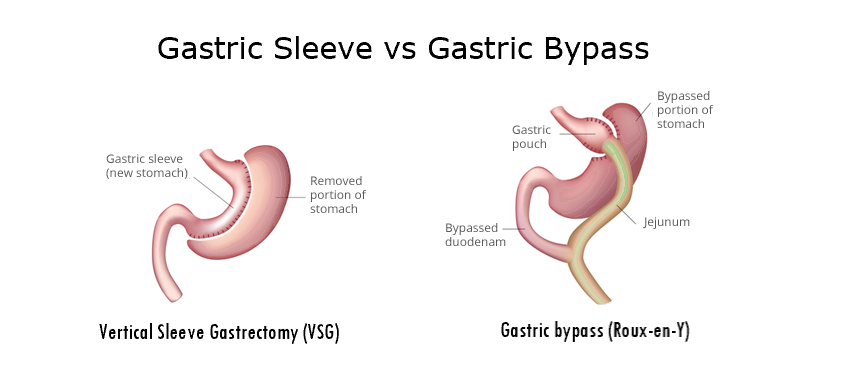How to choose the right bariatric surgery?
We have got the two main surgery options of gastric bypass and sleeve gastrectomy. You need to know the benefits and risks of each so that you can make the best choice. Each of these surgeries has a different metabolic effect, so we look at the changes in your metabolism and driving the weight loss. The gastric bypass will have the most dramatic changes, and the sleeve gastrectomy the same or a little less amount of changes. Then we are going to need to make up for it by changing our diet.
Dietary Changes After Bariatrics
Essentially, here we have broken our dietary program into 11 dietary changes that you can need to make after gastric banding, gastric sleeve, and gastric bypass.
- Eat one pound of vegetable daily
- Replace sweetened food with fruit
- Move your body
- Eat raw nuts
- Limit junk food
- Minimize starchy vegetables and grains
- Minimize dairy intake
- Eat less meat
- Exercise
- Minimize refined oil intake
- Minimize salt intake
If you are going to reach that goal weight and maintain it for the rest of your life, there is still the requirements of eating lots of fruits and vegetables, moving your body, walking & staying active, eating nuts, not junk food, minimizing the amount of grains & starch & wheat products intake.
Sleeve vs Bypass Dietary Changes
For the sleeve gastrectomy, eight of these eleven changes are needed to reach the goal weight and maintain it. The gastric bypass, with the most dramatic metabolic effect, still requires six of these changes. It is an important concept for gastric bypass patients; this does not allow you to eat freely even though it has the most significant metabolic effect. But it does have the most efficient and requires the least modification of your diet. When we look at weight loss, RNY gastric bypass has the most weight loss. With the sleeve gastrectomy, we see a little bit less weight loss – typically around 15 to 20 pounds less weight loss than we do with the gastric bypass.
Gastric Sleeve vs. Gastric Bypass Guidelines
So when we talk about how to decide which bariatric surgery is suitable for you, here are the general guidelines. Certain patients will benefit from one procedure over the other.
| Gastric Bypass | Sleeve Gastrectomy |
| Diabetes (Insulin Dependent Diabetes) | Previous Major Extensive Abdominal Surgery |
| GERD (Severe Gastro Esophageal Reflux) | No GERD |
| Slow Metabolism | Faster Metabolism |
| Limited Mobility | Lower BMI (<50) |
| Want Most Weight Loss | Recurrent Kidney Stones |
| Accept More Risk | Accepts Less Risk |
Conclusion
So, in summary, patients who have diabetes or who have severe acid reflux (lifestyle-altering acid reflux) should strongly consider gastric bypass. Patients with a lower BMI (less than 45 / 50) or extensive previous abdominal surgery with multiple incisions, multiple reoperations, lots of scars across the abdomen should strongly consider a sleeve gastrectomy.
Reference:
Dr. Matthew Weiner – How do I choose the right bariatric surgery?



